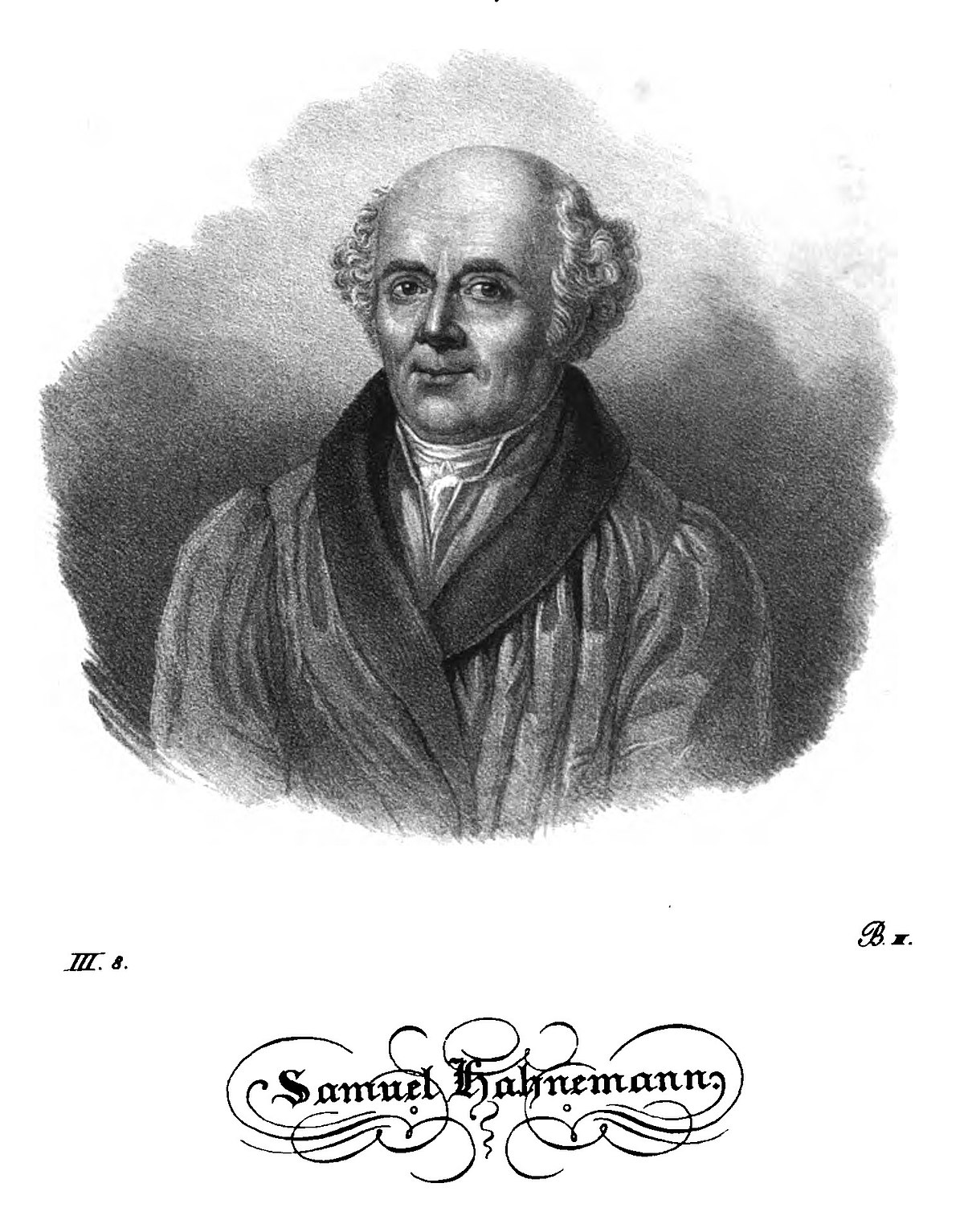Yeah, Homeopathy is pseudoscience and a lot of diluting and banging things on a table and false claims. The placebo effect is proper science.
Fun fact, Samuel Hahnemann was a pioneer in medical research. He was absolutely a quack, but in the absence of actual knowledge and understanding of physiology, his methods were at least rigorous. At the time, the practice of bloodletting was common, and he accurately decried the practice as doing more harm than good.
In his efforts to advance medical knowledge, the guy would ingest known poisons in small quantities and document how it made him feel. “This upsets my stomach, it must be good for indigestion, that one makes me cough, so it must be good for tuberculosis.” He was willing to injure himself to learn medicine. He also poisoned his colleagues, students, and healthy test subjects to further his research without killing himself.
The concept that like treats like was revolutionary. It was completely wrong, but it was not entirely irrational and it led to several important discoveries. The most famous example of a homeopathic success story is nitroglycerin. It causes heart palpitations, and has been one of the most successful heart attack interventions ever discovered.
Of course, we now have the scientific method, medical ethics, informed consent, and a much clearer understanding of human physiology and biology. We now know that homeopathy is crap. Even wt the time, dilution and succussion were entirely irrational, and anyone selling homeopathic remedies today ought to be charged with fraud. But still, it’s an interesting bit of medical and scientific history that most people dismiss entirely.
People think a lot of things
Placebos only work if the people think they’ll work. Funnily enough, it is possible to be aware something is a placebo and still expect it to work, but generally placebos involve some deception where the person thinks they’re receiving real treatment.
So yes, people selling homeopathic remedies are going to claim they’re real treatments, both to convince people to buy them, and because they’ll be most effective if people think they’re real. And the people buying them will also be the people who believe they’re actually effective, causing them to actually have an effect.
Placebos only work if the people think they’ll work. Funnily enough, it is possible to be aware something is a placebo and still expect it to work,
Even if you know that it is a placebo, it still works. https://hms.harvard.edu/news/placebos-work-even-without-deception
I don’t know if you have to believe in the placebo effect for it to have an effect. :)
Homeopathy… do the sugar balls have a better effect if they are very expensive? Who knows.
Yeah, it would be a fine thing to sell to people, given that:
- they don’t charge ridiculous prices for it, and
- they never claim to be a treatment for any ailment that actually needs real treatment.
Yeah, not saying it’s not scummy business. It probably can be a decent treatment for non-serious conditions if the placebo effect gives the patient relief, but any serious condition will need real treatment.
but generally placebos involve some deception where the person thinks they’re receiving real treatment.
That’s literally what a placebo is…
Being aware that the placebo effect exists, and even being aware that someone is about to hand you something that may or may not be a placebo still doesn’t effect the chances of a placebo effect.
Like…
Do you think when placebos are used in studies that the patients aren’t aware that they may get an inactive treatment?
They literally have to sign contracts acknowledging that they’re aware of that fact in every medicinal trial…
Why doors such blatantly wrong information keep getting upvoted on Lemmy?
This is far from the first time I’ve seen this happen.
People know that they can get a placebo treatment, but they don’t know if they actually got a placebo or the real treatment. They’re also generally hoping both that they got the real treatment, and that the real treatment will make things better.
Maybe calling it deception isn’t fully accurate, but the the point is that they’re given something they hope is medicine, but in reality it’s the placebo treatment.
I think you misunderstood what you are replying to. Also you misunderstood the placebo effect (or maybe you think 50/50 placebo control group studies are the only application)
My father and stepmother were full tilt into this quackery. Today they don’t talk about it as much, but they do talk about politics an awful lot. I’ll let you figure out where they fall on the political spectrum.
It’s placebo in any practical sense. As mixtures become more dilute they essentially become pure water: anything over 23 dilutions becomes statistically unlikely to have even a single atom of the original substance in it at all. And the trials on it are indistinguishable from placebo.
Yeah well, that’s how the grift gets you. You know what a purely placebo sugar pill is called that everyone agrees is a placebo? Well… a placebo!
Here is the required YouTube link for every thread about homeopathy: https://www.youtube.com/watch?v=HMGIbOGu8q0
“People think there is a non placebo effect.” Of course “people” do, the same people who think homeopathy works. They are wrong. Full stop, wrong.
We dont think theres a “non placebo effect”
We know there’s a nocebo effect. Which is the opposite of placebo, meaning you can have a negative effective from something that’s inactive.
The real crazy part is if before an experiment to measure the effects, explaining the nocebo effect pretty much elimates it. Explaining the placebo effect doesn’t change the results.
Meaning we have a fundamental disposition to being optimists.
I think you’re misunderstanding the title. It’s saying that homeopathists believe that homeopathy has an effect beyond the placebo effect
Yep, that happened.
Thanks for clearing it up
They can believe all they want. Legitimate medicine requires evidence.
Funny thing, hormesis is what homeopathy was looking for: https://en.wikipedia.org/wiki/Hormesis
Did someone found hormeopathy?
Your link does not contain a source for your titlefixedMy bad, fixed it. I learned it from the Wikipedia article, and when looking for the link I just copied the first link with wiki but that was wiktionary not Wikipedia
I envy you. Had to discuss with esos way to much
I am so conflicted on this. My partner, as a child, had bad case of asthma. She went to normal doctor…which almost killed her by being overzealos with antibiotics (That doc also almost killed my best friend…). Her mother, a proper believer that natural healing is the way to go, took her then to a homeopath.
And it worked.
It bloody worked. Shit backed off enough that she’s having a normal life. Granted, that homeopath also had doctorate in medicine and was long time practicing doctor, but shit.
Edit: Note to self, people dislike even actual real histories because homeopathy bad. Heh.
I read somewhere that one of the effects is abstention from treatment. Essentially the idea that, sometimes, to do nothing is better than blasting the body with macro doses of foreign chemicals. This seems to be the case here.
Yeah, i imagine it really depends on the case and the person.








